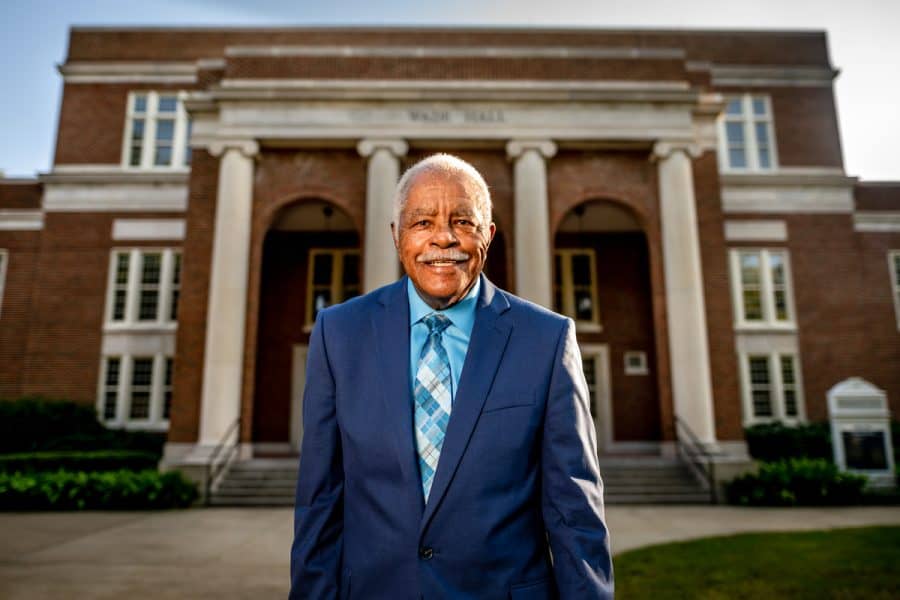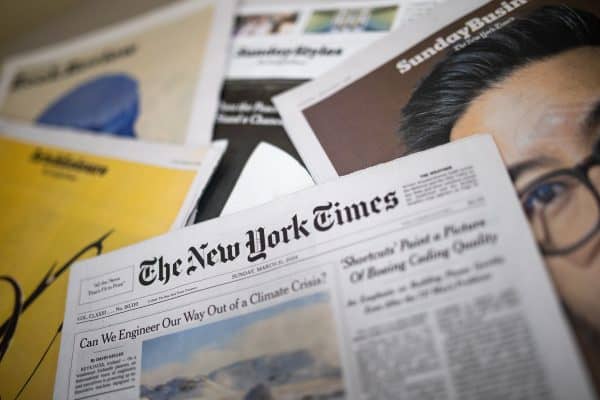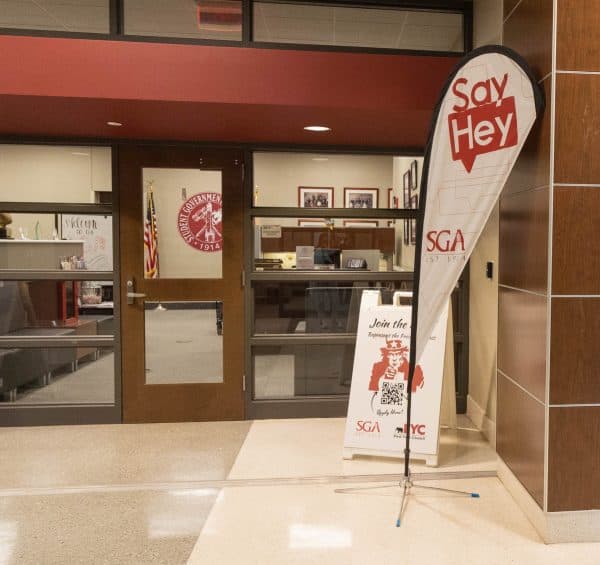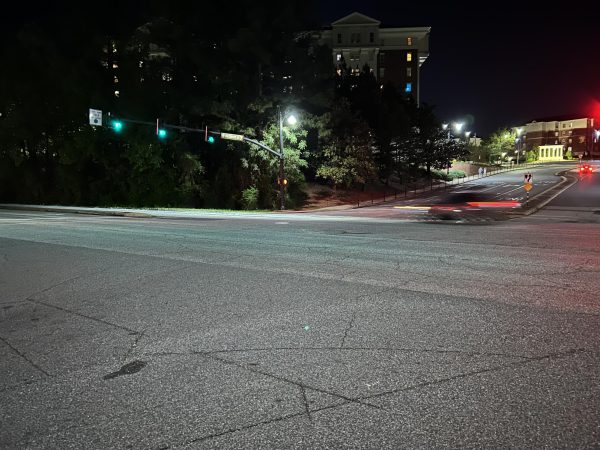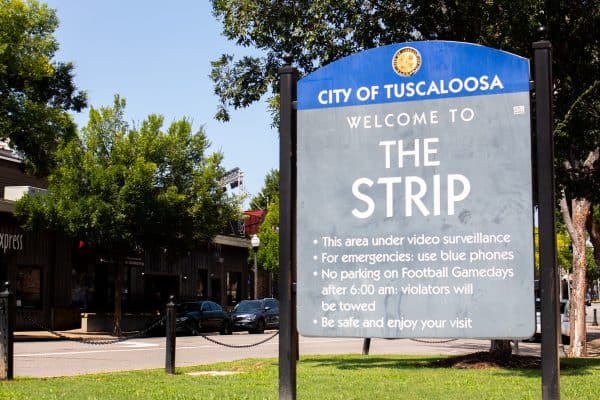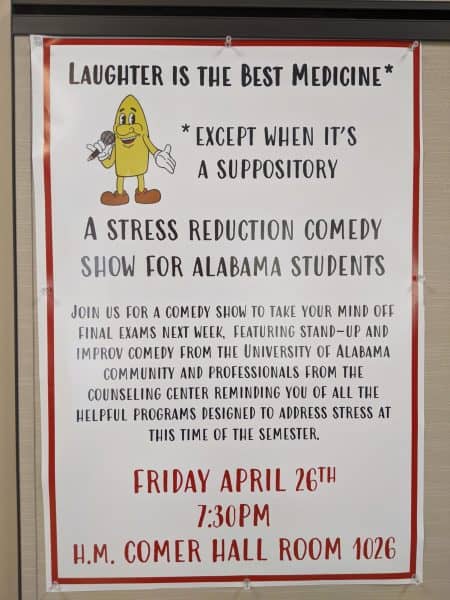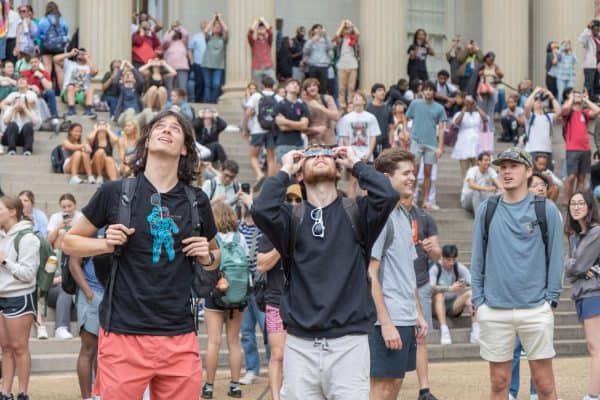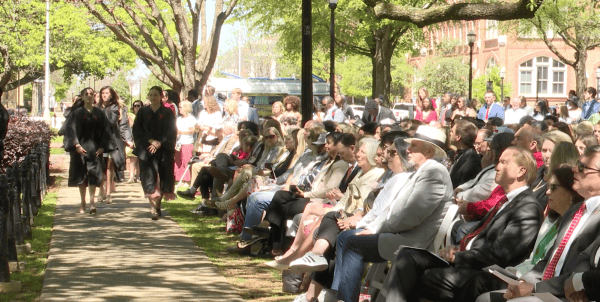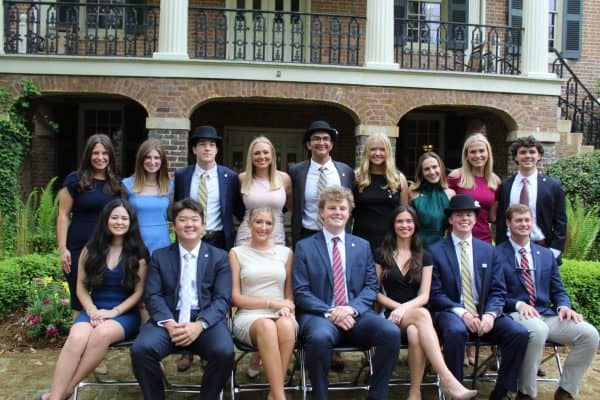Get to know the namesake of Wade Hall
Archie Wade standing in front of Wade Hall, a campus building recently renamed after him.
October 21, 2021
Correction: This story was edited on Oct. 22. Ronald Gray was the president pro tempore of the Board of Trustees at the time of the working group’s formation.
In 1964, a young Archie Wade left an Alabama football game at halftime because of targeted racial harassment in the student section.
In 1970, he was asked to help recruit Black athletes to play for the Alabama football team, where they would spend their Saturdays in the same stadium that left Wade feeling unwelcome six years prior.
Last month, Wade, age 82, was recognized as the new namesake of the former Moore Hall by the UA Board of Trustees.
Ronald Gray, then president pro tempore of the Board of Trustees, formed a working group last summer to conduct a “comprehensive review of all named buildings, structures, and spaces on our campuses relative to the University of Alabama System’s shared values: integrity, leadership, accountability, diversity, inclusion, and respect.”
When the working group determined that Albert Burton Moore’s legacy was “inconsistent” with the current views of the University, it was time for the building on the corner of University Boulevard and Sixth Avenue to receive a new name.
Trustee Emeritus John England Jr., chair of the building names working group, led the search.
“As we began our review of buildings and spaces on the System campuses, we started considering alternatives in the event we decided to recommend to the full Board of Trustees that a name be removed,” England said. “We also began receiving information from faculty and students suggesting names, which included Dr. Wade.”
Friends, colleagues and students advocated for Wade from the start of the process and created a petition shared across social media to encourage his selection.
When the news got to Wade that he had been chosen, he was “elated.”
“I had a visitation from the chairman of the committee, and one other member of the committee, earlier in the summer,” Wade said. “They just had mentioned that there was a possibility and they had submitted my name to the board, but I hadn’t heard anything else until that actually happened a couple weeks ago. I was happy.”
On Sept. 17, the Board officially passed the resolution. Wade’s name is now be engraved into the campus he owes his best and worst days to.
“It is my hope that students, faculty, staff, parents and visitors will want to inquire about Dr. Wade and learn about him and his contributions to The University of Alabama and the state of Alabama,” England said. “His is truly a Jackie Robinson story in the history of The University of Alabama.”
Wade’s story may resemble Robinson’s in more ways than one. Sparking his interest in kinesiology and physical education was his own experience as a college baseball player. At Stillman College, a historically Black liberal arts college, Wade played four years, having never once participated in high school.
“That was a blessing in itself,” Wade said.
After graduating from Stillman, Wade was offered a professional contract, and played three years for the St. Louis Cardinals’ minor-league affiliate team. Following his time in the pros, Wade returned to what he felt was his true calling: education. After receiving his master’s degree at the University of West Virginia, he returned to Tuscaloosa and began both his doctorate studies and his teaching career.
As professor of what was then the Health, Physical Education and Recreation Department, now known as the Department of Kinesiology, Wade cherished his time with students and enjoys staying in contact with them now.
“I’ve always enjoyed the students there my whole 30 years,” Wade said. “The most enjoyable time I have now is hearing from some of those students who were in classes in 1974 and 1975. Just to hear from them. I mean I had someone visit me about two months ago that was in a class in 1974.”
Wade also found his place among colleagues at a school that did not always accept him as a young Black man.
“I worked with some wonderful people in our department and in the college,” Wade said. “I enjoyed all the people that treated me as well as I ever thought they would have. They accepted me. I thought at first I was being tolerated. But after five or six years, I felt like they at least accepted me for what I was and what I was trying to do and realized some things that I was going through.”
Wade noticed when he was treated differently than others on campus. The University saw its first Black graduates in the ’60s, but racist attitudes were difficult to eliminate.
“When I was walking down University Boulevard, there were some people that would change sides of the street just to avoid me,” Wade said. “I could tell that. But that’s okay. I just said, ‘They have a problem; I don’t.’ Because I always treat them the best I could, no matter who it was.”
Wade said he believes in moving on from those experiences.
“I guess in any career you’re going to have ups and downs and highs and lows and peaks and valleys and all that, but I just try to remember those things that were high, and let those things that were low kind of go away.”
Among the lows was Wade’s first trip to an Alabama football game: one that was cut short due to harassment from other students among the crowd. At the time, Wade was a Tuscaloosa resident attending Stillman.
“I was one of the three people who tried to go to the game at Denny Stadium,” Wade said. “The President gave us three tickets. I was one of those three that went out there, along with Dr. Joffre Whisenton and Nathaniel Howard. We were the three from Tuscaloosa who went to, in a way, integrate the stands. We had to leave at halftime because people were throwing things and ice and cups and all that. I just thought it was best for us to leave. That was kind of a low point.”
Six years later, after beginning as an assistant professor at the University, Wade was asked to recruit players to play in the same stadium that rejected him. At the time, the Crimson Tide had two Black football players: Wilbur Jackson and the program’s first Black athlete, John Mitchell.
“Six years ago, you don’t want me to watch a game in the stands, and now I’m trying to help people come and play.,” Wade said.
Wade recruited under coach Paul “Bear” Bryant and spent his weekends traveling, scouting top talent for the Tide.
“It was new for me because I was new at the University,” Wade said. “So, I am trying to manage what I’m doing for classes and also on the weekends, during recruiting season, I would be on the road trying to recruit athletes. And I did that for two years. After two years, I decided I would like to stop because, from September to signing date, I was pretty much gone on the weekends.”
Despite the demanding schedule, Wade said his time with the team was a highlight of his career. Even now, when Wade watches from his Tuscaloosa home, the games bring a sense of nostalgia, but also progress.
“[The stadium has] been renovated, refurbished, and all that, but that’s that place where I was, where they didn’t want me to do it in 1964,” Wade said.“The year’s 2021, and you see all the players, and you see their progress. I’m just amazed at it. And I know we still have a lot more to do and a lot more things to take care of, but at least I think we’re making strides towards our goal where everybody is treated fairly and equally.”
Wade applauded the University’s efforts but said there is always room for more.
“Well, I think the University has done an outstanding job in trying to take care of some of the things that I think should be noted and corrected,” Wade said.
In making these changes, Wade hopes that light can be shined on his childhood and the boundaries that were set against him growing up.
“I grew up in a segregated [society]. I know nothing about going to school with a different race. That didn’t happen to me until I went to college,” Wade said.
Growing up, Wade was used to playing with children of other races. He spent time with his best friend, then had to watch him go to a school Wade was not allowed to attend. Instead, he caught a bus, and was taken seven miles away to the Black school across town.
While these experiences stick with Wade, he feels no need to publish them for others.
“Some people have asked me why I haven’t written anything down, a book about things, about what happened and stuff, and I told them I didn’t really want to do that,” Wade said. “I’ve talked to people about it, but there were some bad times for me. But there were so few, I don’t even mention them. That’s the way I feel about it. I look at things and think if they’re important or not important. Even though it was important to me, I don’t think it’s important in the whole scheme of things, so I don’t mention it.”
According to Wade, this aspect of his character can be credited to his parents, who are no longer around but continue to inspire him.
“I always say I had wonderful parents,” Wade said. “They supported me; they did everything else I could ask a parent to do for their kid. They always told me to treat people right and do fair and work hard and stay focused, and it helped. They’re the ones that told me if things are important, take care of it; if things are not important, let it go. I think about it almost every day.”
Wade is now surrounded by his wife of 60 years, his five children and nine grandchildren.
Wade smiled as he reflected on his years at the University, on the field and since.
“I’ve had a good life. I’ve enjoyed it,” Wade said. “I had a chance to meet a lot of great people. People I read about.”
This story was published in the Legacy Edition. View the complete issue here.
Questions? Email the News desk at [email protected].

